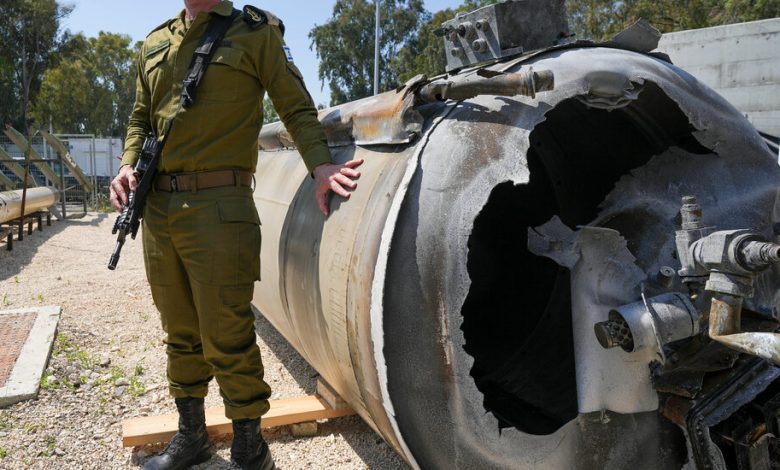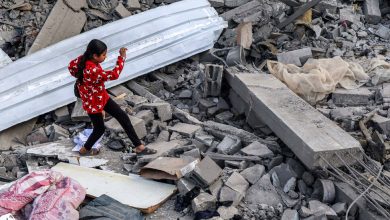Wednesday Briefing


“We cannot stand still from this kind of aggression,” said Rear Adm. Daniel Hagari, standing next to one of the Iranian ballistic missiles that Israel intercepted over the weekend.Credit…Tsafrir Abayov/Associated Press
For Israel, every response to Iran carries risks
Israeli leaders were weighing a set of possible responses to Iran’s airstrike, aimed at achieving different outcomes: deterring a future attack, placating Israel’s U.S. allies and avoiding all-out war.
Iran’s attack on Israel, involving hundreds of ballistic missiles and exploding drones, changed the unspoken rules in the archrivals’ long-running shadow war. Until last weekend, neither country had directly carried out a major strike on the other’s territory.
Israel’s fractious war cabinet is considering options like hitting an Iranian target in a third country (similar to the strike on Iranian military officers in Syria that prompted Iran’s barrage), attacking a mostly symbolic target inside Iran, and carrying out a cyberattack on Iranian infrastructure. All of those choices have potential drawbacks.
After three days of meetings, the cabinet has yet to decide on a response. It is expected to reconvene today.
The U.S. announced that it was trying to find ways to cut off Iran’s access to military components and to further restrict its oil exports, while E.U. ministers discussed expanding sanctions on Iran’s weapons program.




